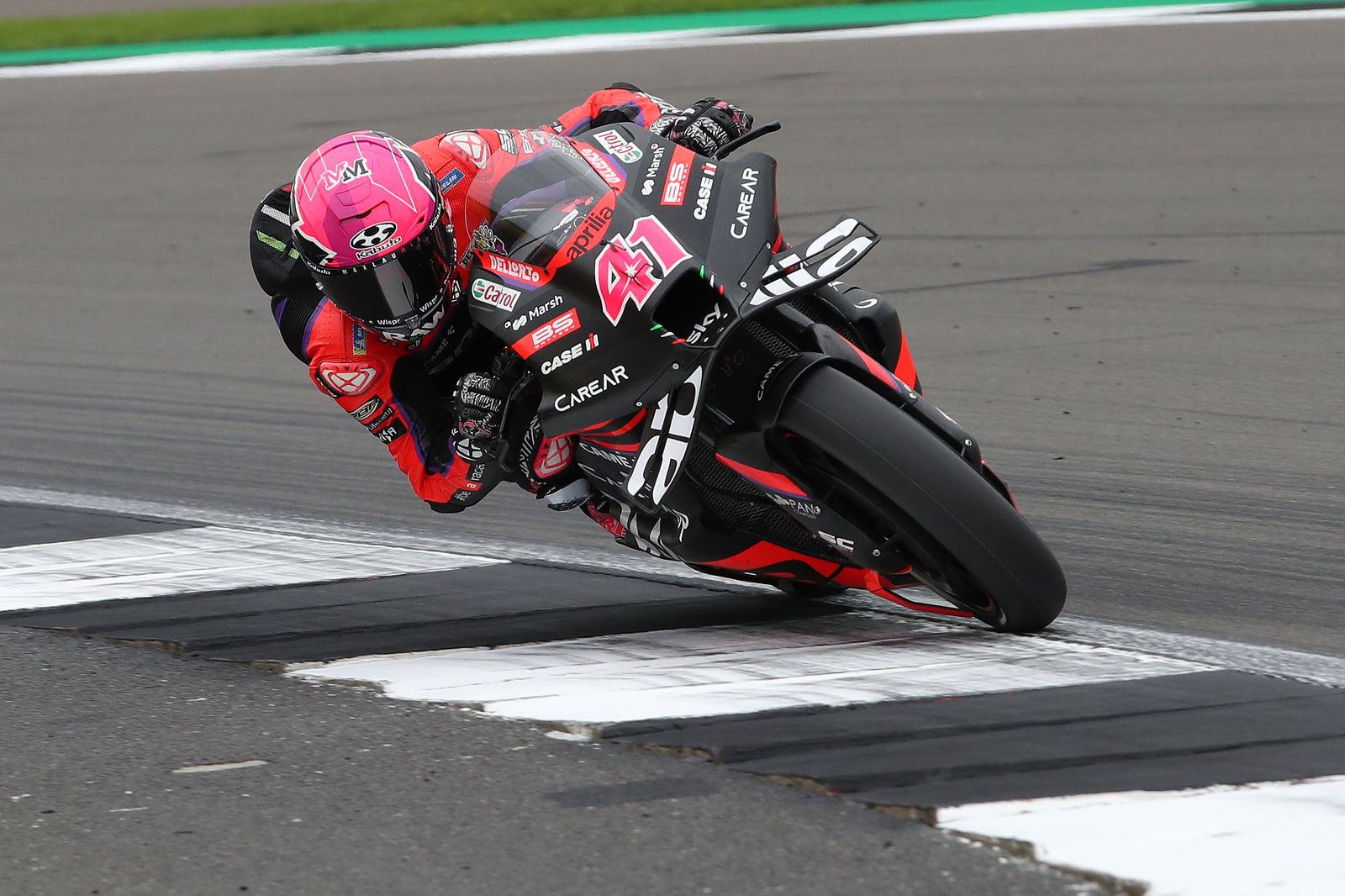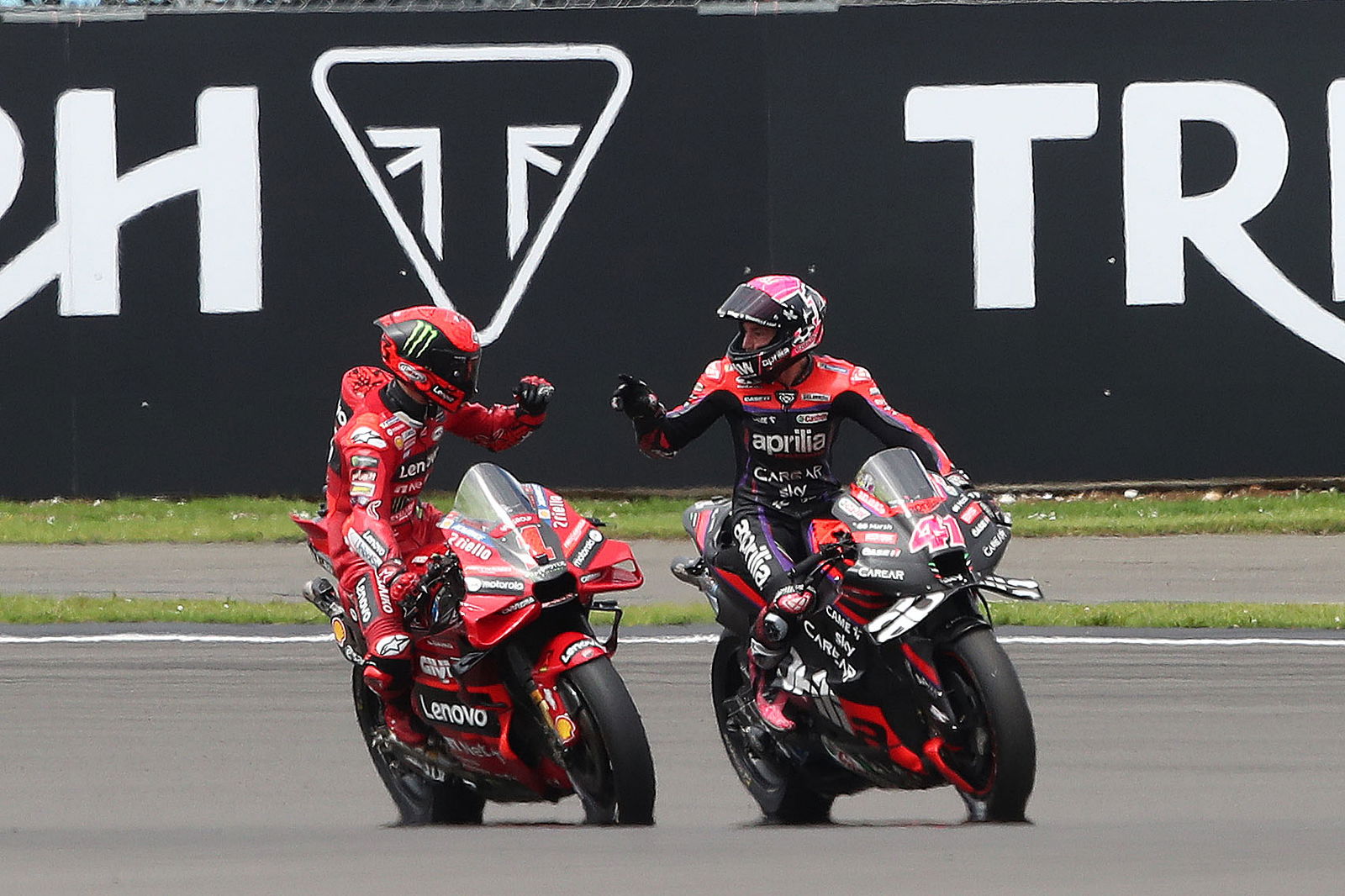MotoGP Silverstone, Saturday: Wet weather and rear grip
In a slight change from Friday, Saturday for MotoGP in Silverstone was dominated by rain, rather than the cold: finding rear grip would prove a vital key.

If Friday at the 2023 MotoGP British Grand Prix was conditioned by the cold, Saturday in Silverstone was conditioned by the rain.
Having arrived before MotoGP even took to the track in the morning, the rain brought to Silverstone by Storm Antoni left the circuit in an almost flooded state for the second Free Practice session of the weekend.
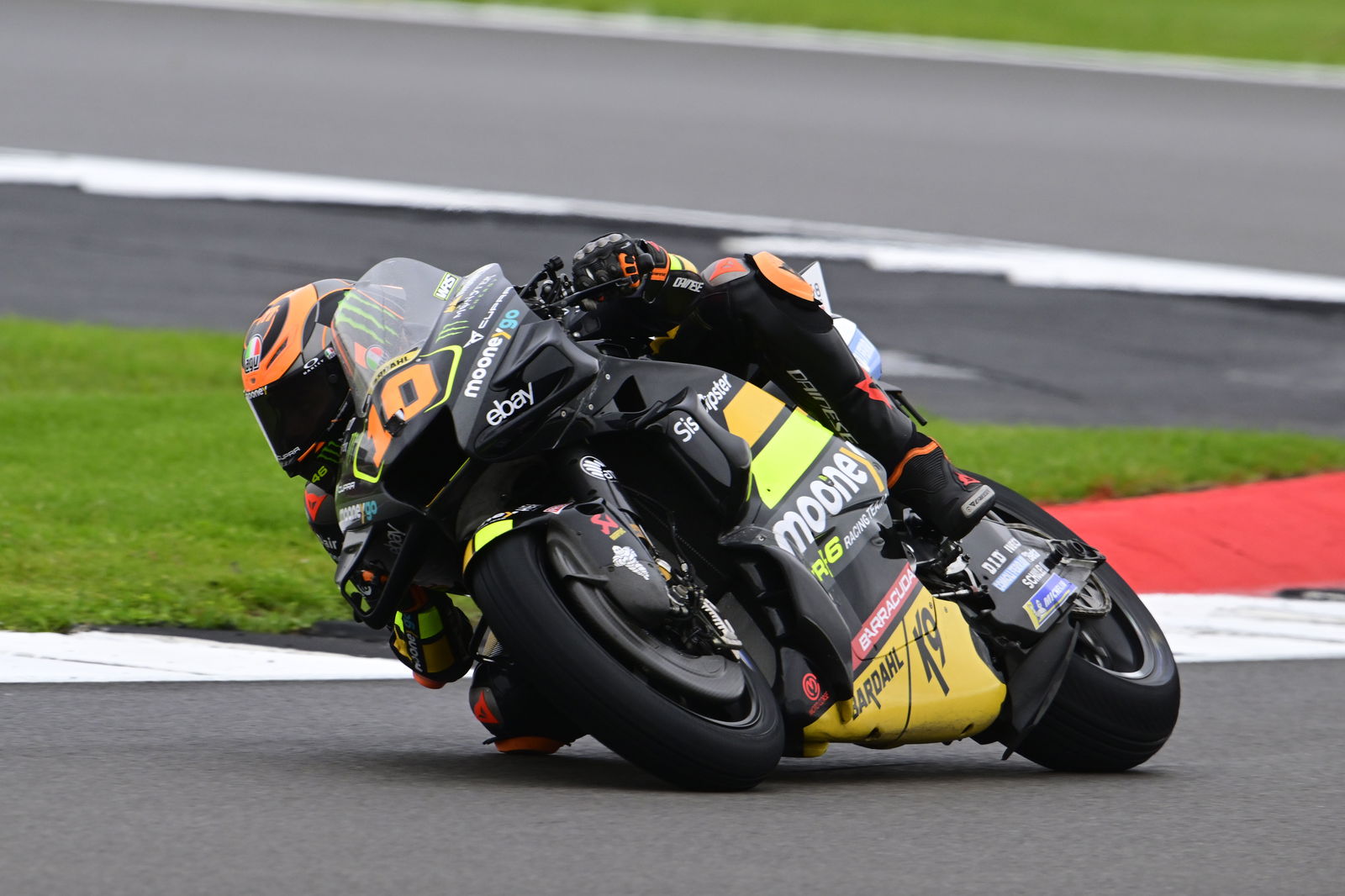
“It was clearly on the limit,” Luca Marini said of the conditions in FP2 for the British Grand Prix. “But, for me,” he continued, “it’s okay to leave us riding with that condition because, if we are riding alone it is not so dangerous, because the main problem is that the visibility is very low [when there is a lot of water on-track].
“The problem is that to make a race in that condition I think was impossible, but to make a qualifying, riding alone, it depends how much you want to risk.”
Fabio Di Giannantonio was one of three riders to crash losing the rear at turn one. He and Augusto Fernandez had identical crashes, himself in Q1 and Fernandez in FP2, as they both high-sided; whereas, in FP2, Alex Marquez simply spun the rear out from underneath him.
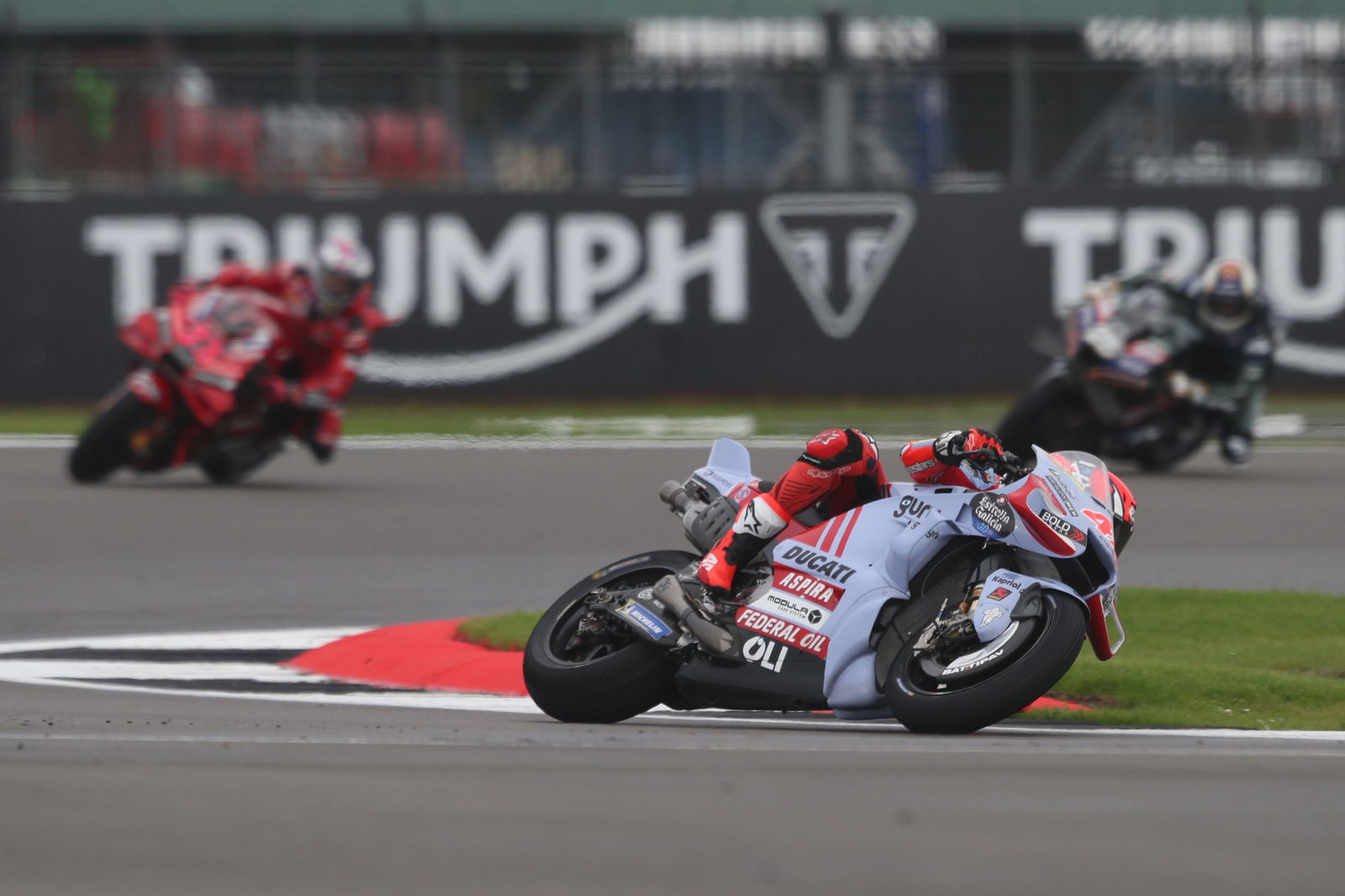
But the Italian did not feel this, at least in itself, indicated the conditions were unsafe. “Honestly, on my side I did a mistake, I was too fast and had too much lean angle, so I lost the rear,” Di Giannantonio said. A lack of patience, not the conditions, had caused his fall. “It was a stupid mistake, honestly, I had to wait a little bit more,” he continued. “I knew that I could be fast, but I was too optimistic in that corner, and maybe rushing too much. I had to be patient, and improve my lap time lap by lap.
“It’s part of the game, we are human also, so we do mistakes. For sure, next time I will be more relaxed.”
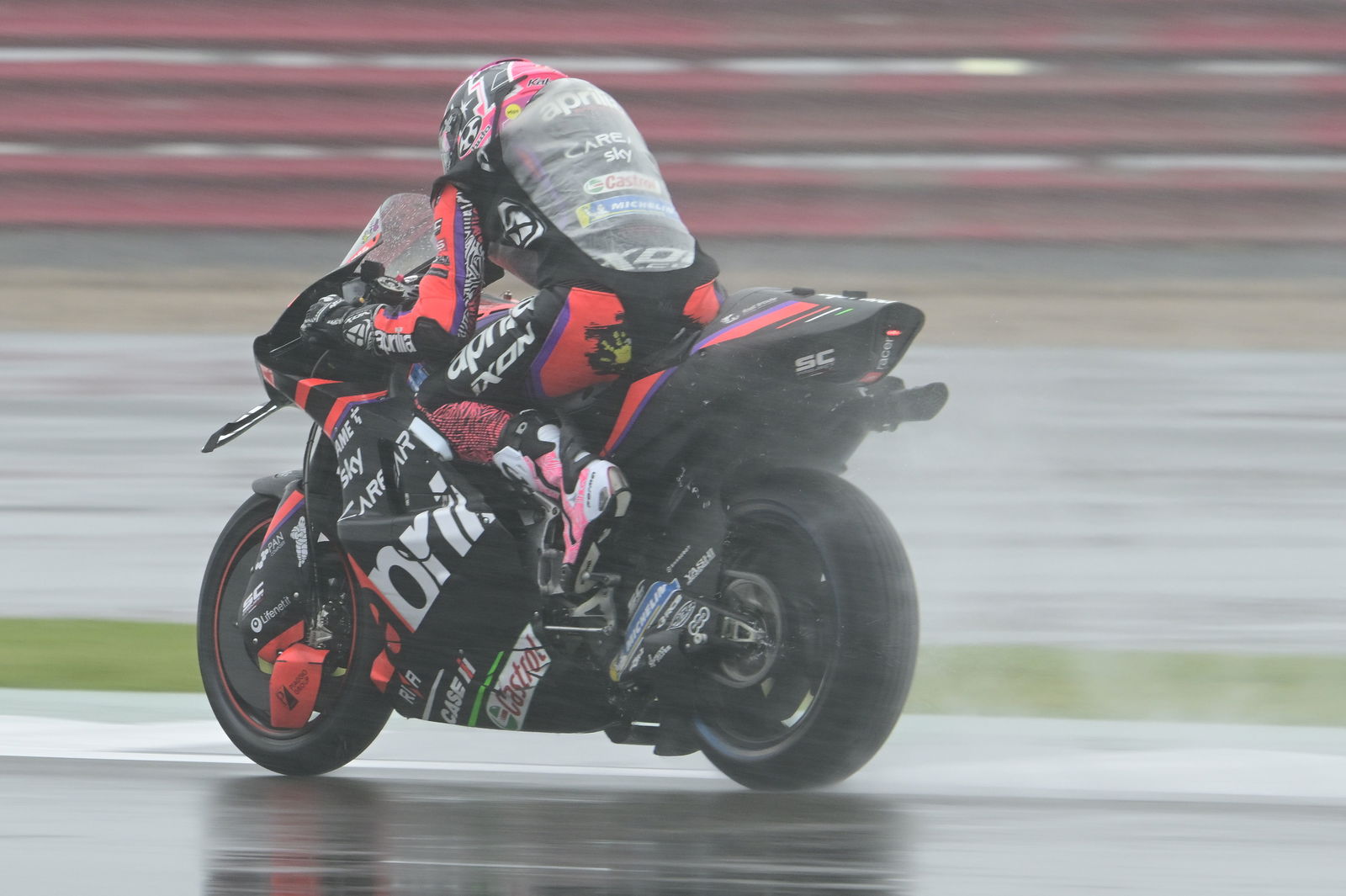
Aleix Espargaro was more certain in his verdict on the conditions in the morning. “I was very angry,” he said. “I don’t understand what the Race Control did today at all. I talked with them after the qualifying, and they said ‘100% in these conditions the race would not start,’ and I said ‘okay, so why does the qualifying start?’
“It was impossible in the straights, it was aquaplaning everywhere, we see many crashes… [but] the show must go on,” Espargaro quipped, with an inescapable sarcastic resignation.
A truck with a rotating brush on the front was sent out onto the track before MotoGP FP2 in order to try to clear some of the water away, and while Espargaro said this had a positive impact, it was not enough.
After the truck had finished its job “It was good actually,” Espargaro said, “but if it’s still raining in five minutes the track is the same.”
The problem, Espargaro said, was not the decision to start the practice, but the decision to allow it to continue despite the apparent aquaplaning the riders were suffering. “It’s okay, you do this job, you let the riders go out on track and as soon as you see aquaplaning- it was me moving the hand [to signal for a red flag], it was [Francesco] Bagnaia moving the hand, many crashes - put the fucking red flag.”
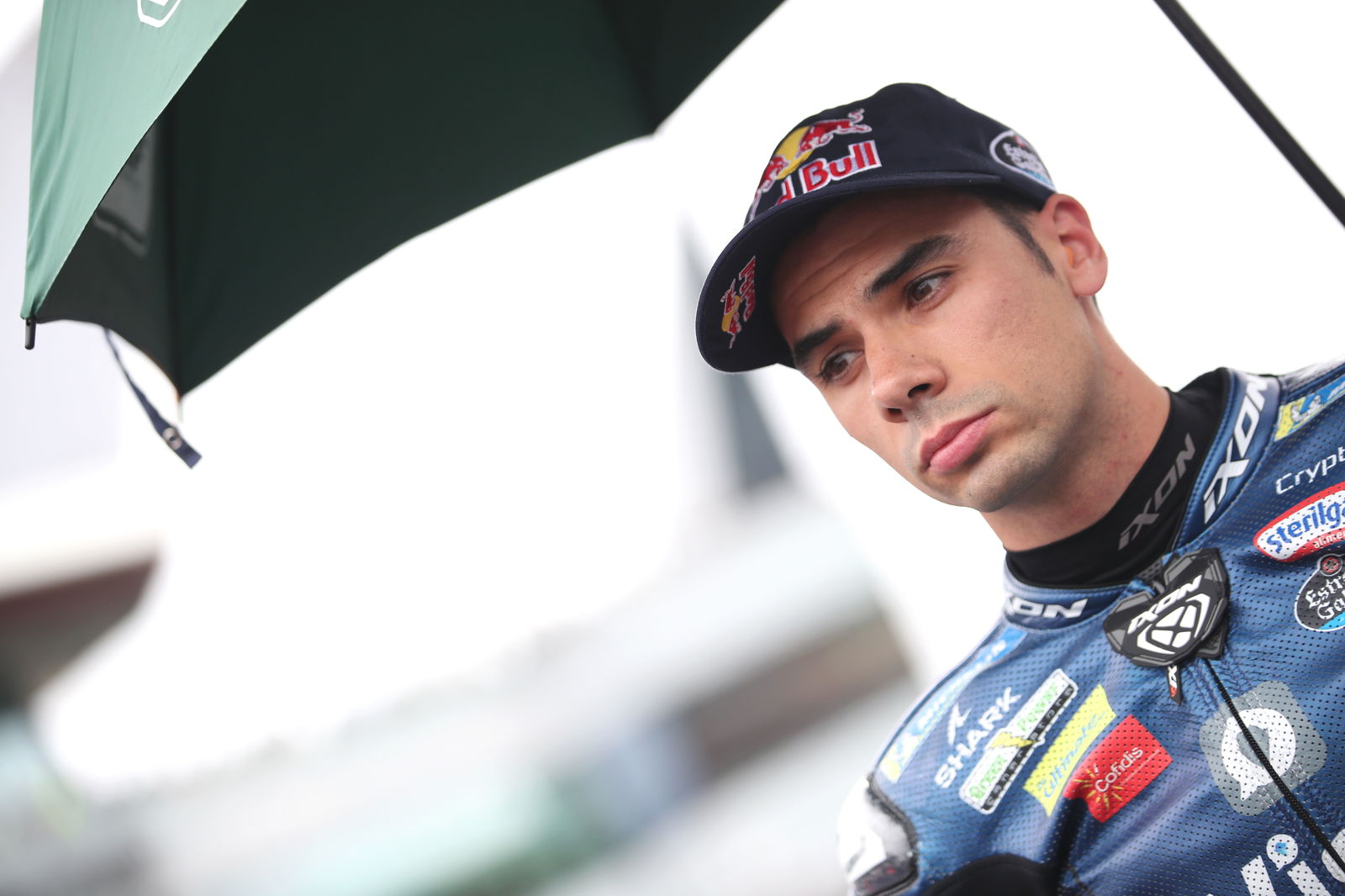
Miguel Oliveira’s concerns were present before a wheel was turned. “I didn’t want to go out,” he said. Should there have been a red flag in FP2? “Yes, for sure,” the Portuguese answered. “In Free Practice for sure it was a red flag, because the thing is with those crashes where you aquaplane you do maybe once the corner in the same speed and you don’t crash and the lap after the bike just spins on you for no reason. So, it’s kind of a difficult situation to manage - you don’t manage anyway, it’s just [about luck].
“So, for me it was for sure a red flag. If we raced with that amount of water, I think we all needed to get together and really decide, because it’s not racing: when you’re behind and you’re guessing where you’re going to brake, it’s dangerous.”
Rear grip seemed to be the key factor in deciding results in the Sprint at Silverstone. With it, you could be fast and make passes, without it you were slow, hard on the rear tyre, could not fight, and could not find a way to counter the issue.
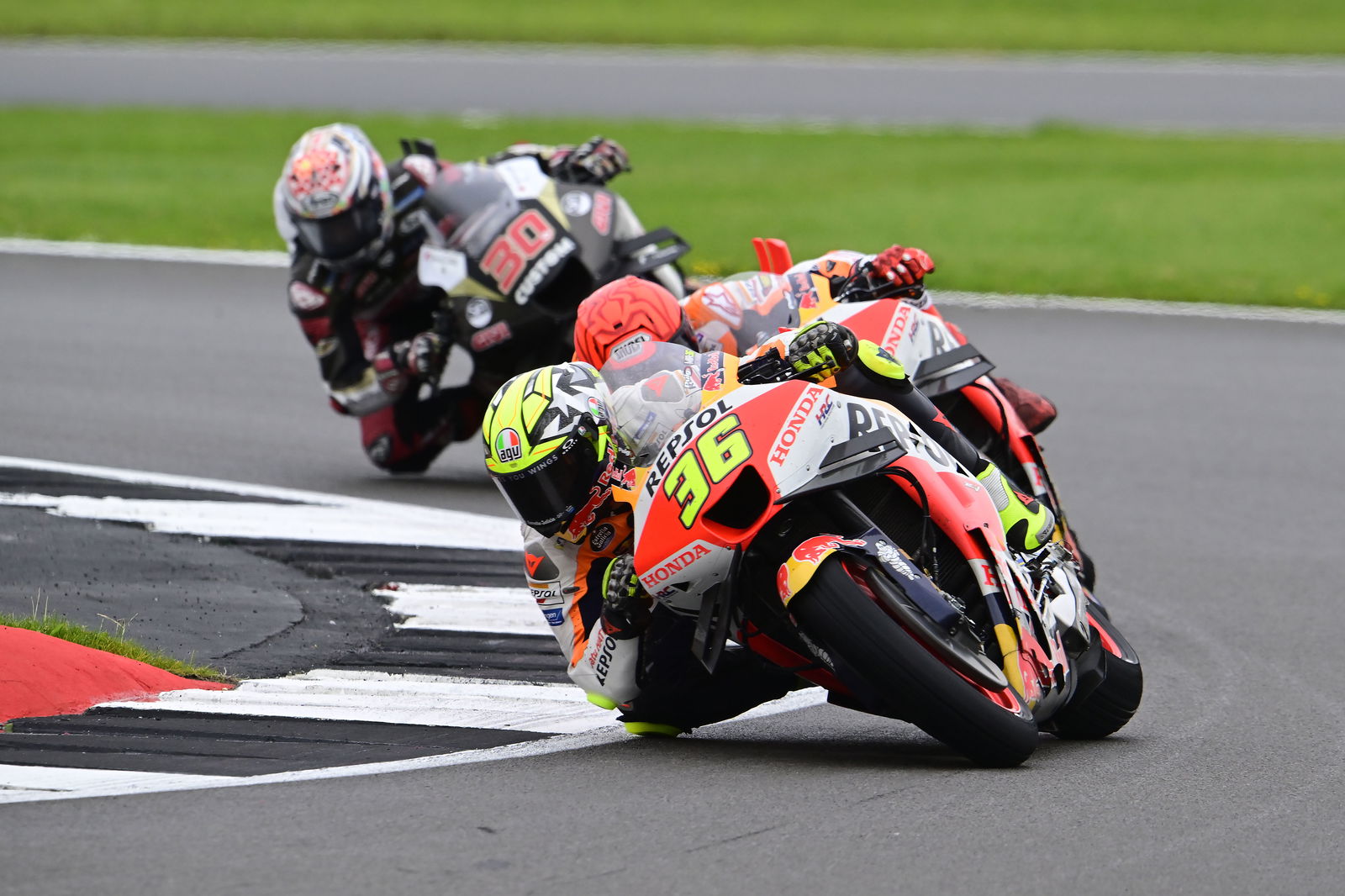
LCR Honda’s Takaaki Nakagami struggled for performance throughout the race. “I tried to play with the switches, high torque, low torque, different TC, but the performance was not coming.
“We struggled because we play a lot with the lean angle, but the bike has no reaction, no drive, so it was a big shock that in only 10 laps we finished 30 seconds behind.”
For Nakagami, as well as for the Repsol Honda riders, Joan Mir and Marc Marquez, the lack of rear grip from the RC213V gave its largest disadvantage in a lack of acceleration.
“I think it was both things (spin and a lack of drive). Somehow, we had so much spin, [and then the electronics made the bike feel like it was stopping], the RPM was not rising. We try so much to pick up the bike, but at any angle, the bike does not [...] drive.”
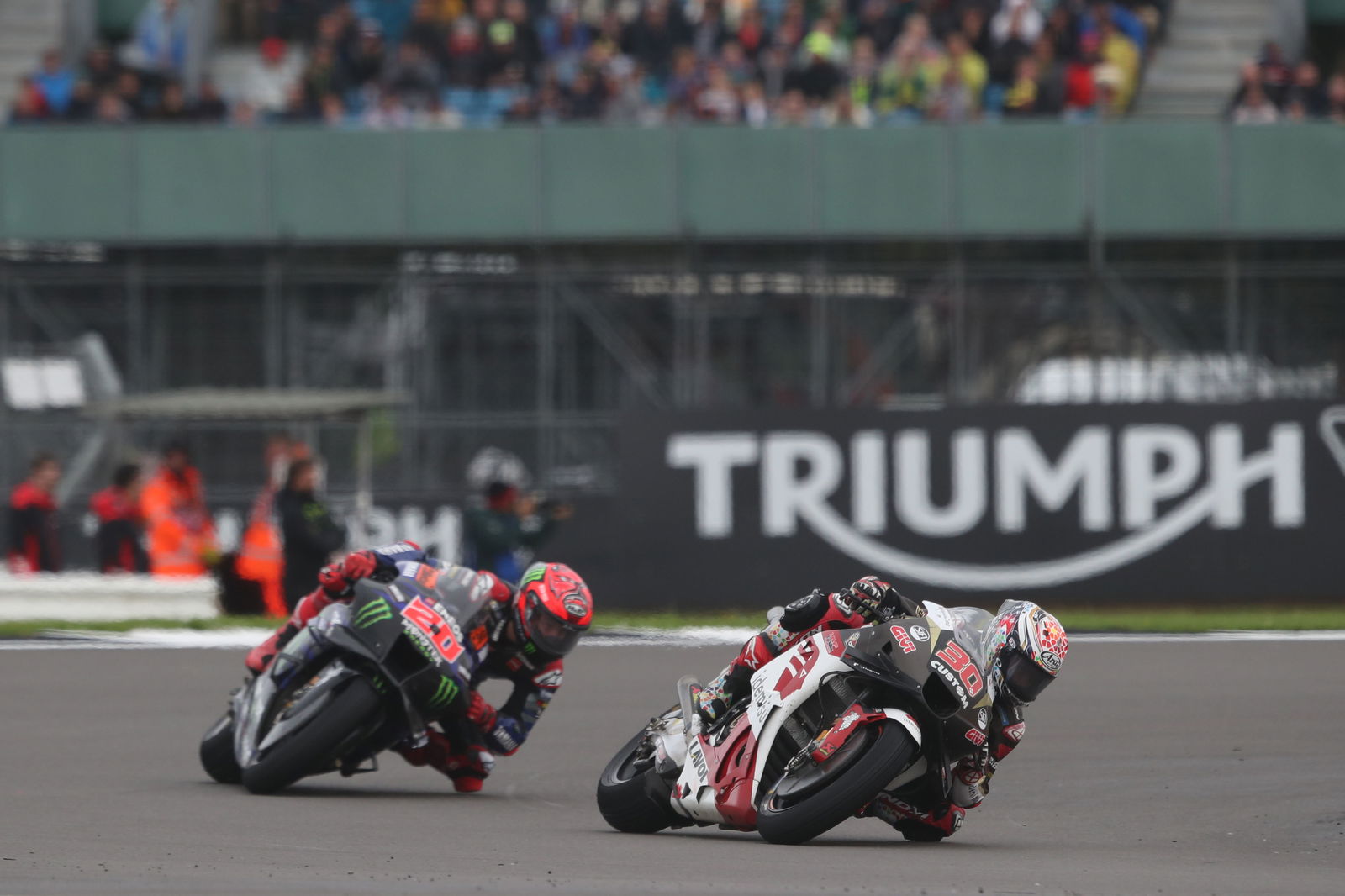
When asked if this was down to electronics, Nakagami said “I believe so. Because I played with so many switches, a different riding style, but I was behind Marc and Joan, and it’s exactly the same performance.”
Nakagami said he believes Honda should give more control of the throttle to the rider in conditions like those found in the Silverstone Sprint, because the way the electronics are at the moment are sapping too much power from the bike, and preventing it from accelerating.
“For us,” Nakagami said, “it’s like there is too much safety [in the electronics], but [it does not allow us] to go fast.”
This was a relatively recent thing from Honda's electronics. It has changed in the “last two years,” Nakagami said, where the electronics engineers had developed the strategies for the RC213V to “try to be more safe, because there were a couple of big high-sides, Marc had a massive high-side and [the engineers] tried to avoid this risk. But, sometimes, it's not always going well, because we cannot play [with the bike]. They have to find the balance, and we need to improve the performance.”
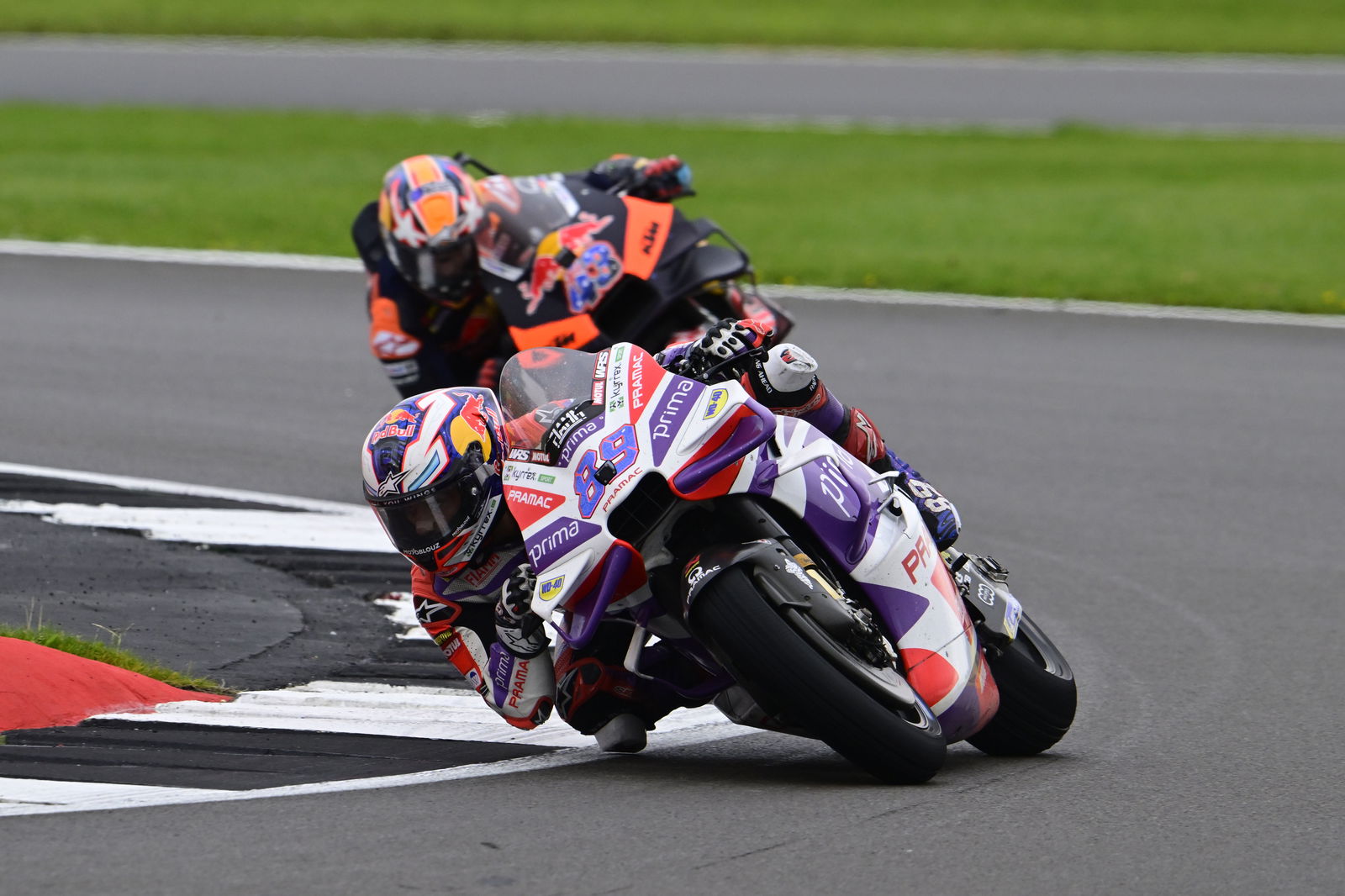
Jorge Martin’s race had also been conditioned by rear grip. “The problem was the electronics,” Martin said. His problem was too much intervention, which started to hinder him as the track dried and the tyre warmed and wore. “The track was getting dry, and then at that point there was more spin, and the [traction control] worked too much. I think I need a more free traction [control setting] and just manage the situation myself.”
Martin felt he was also at a disadvantage to his teammate, Johann Zarco, in acceleration. The Spaniard said he felt Zarco’s bike setup was allowing him more acceleration. “When he [Zarco] overtook me, I was doing the same lines as him, doing exactly the same, and he was going away on the acceleration. I think it was more about the bike, not about myself.”
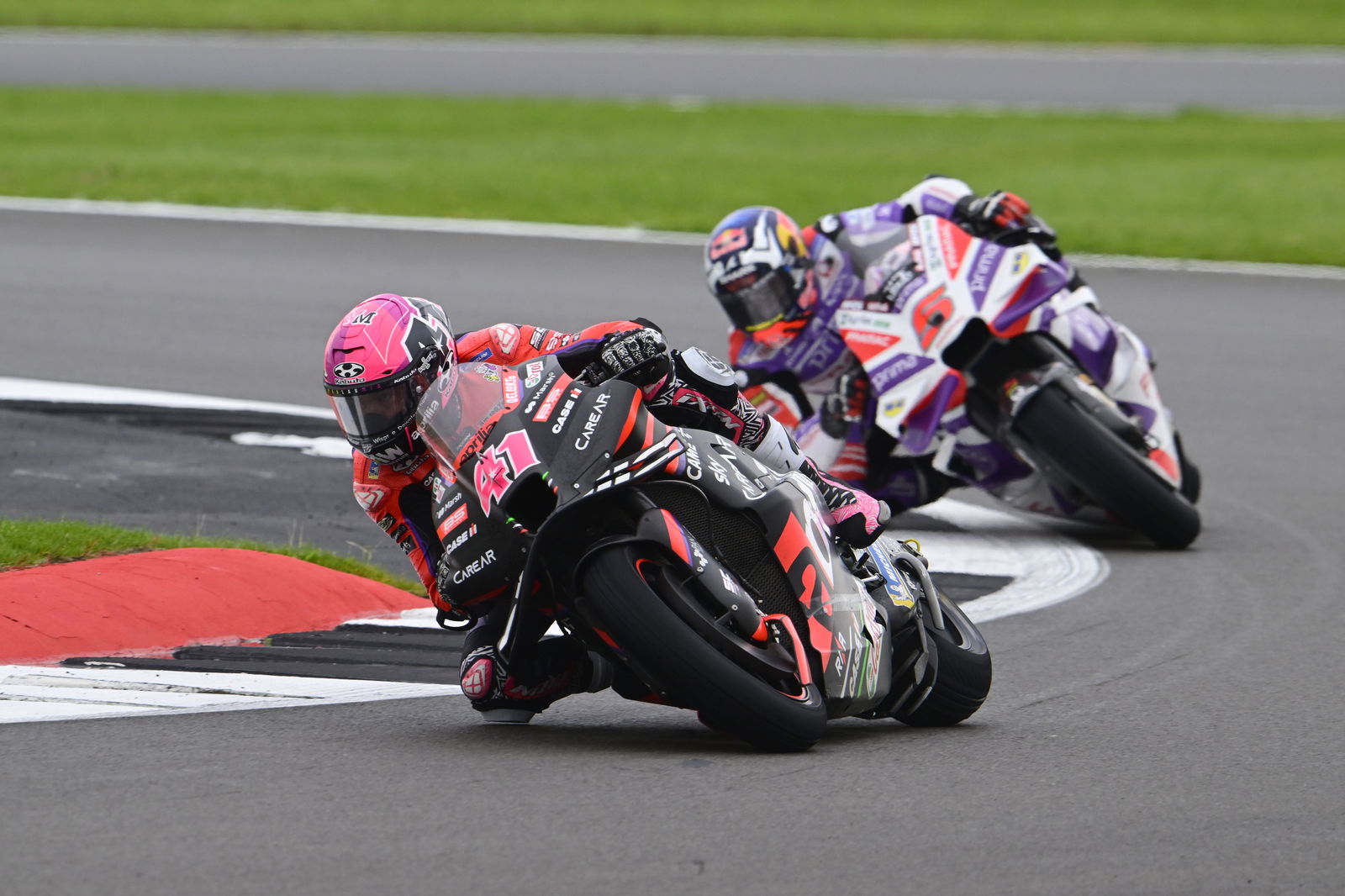
Zarco has made a habit of late charges in wet races recently, with those which came in Thailand last year and Argentina this coming to mind especially. But he felt, on this occasion, that he did not have the same advantage in acceleration as he had enjoyed in the past. “I could see that the advantage I am used to having on drive (acceleration), I could not have it as usual [in the Silverstone Sprint].” This, combined with Zarco’s start which dropped him from his grid position of ninth to outside the top 10 early on, prevented him from fighting for the podium.
Aprilia had struggled a lot in wet conditions in Argentina, but in Silverstone there seemed to be improvements. Aleix Espargaro explained the changes that had helped to achieve this improvement. “We made the bike a little bit shorter, and quite a lot higher, to try to generate more grip, to try to make the bike transfer [weight] a little bit more. After qualifying, we made the front even softer, and actually it was in the limit in the race.
“What we try is to try to generate more grip on the rear, [which] is the most important thing, because [normally] we are not generating grip and, especially when it is not hot, we are not able to put the right temperature in the rear tyre.” This inability to generate rear tyre temperature in conditions with more water on the track is what cost Espargaro and Vinales in qualifying, where they qualified 12th and eighth, respectively.
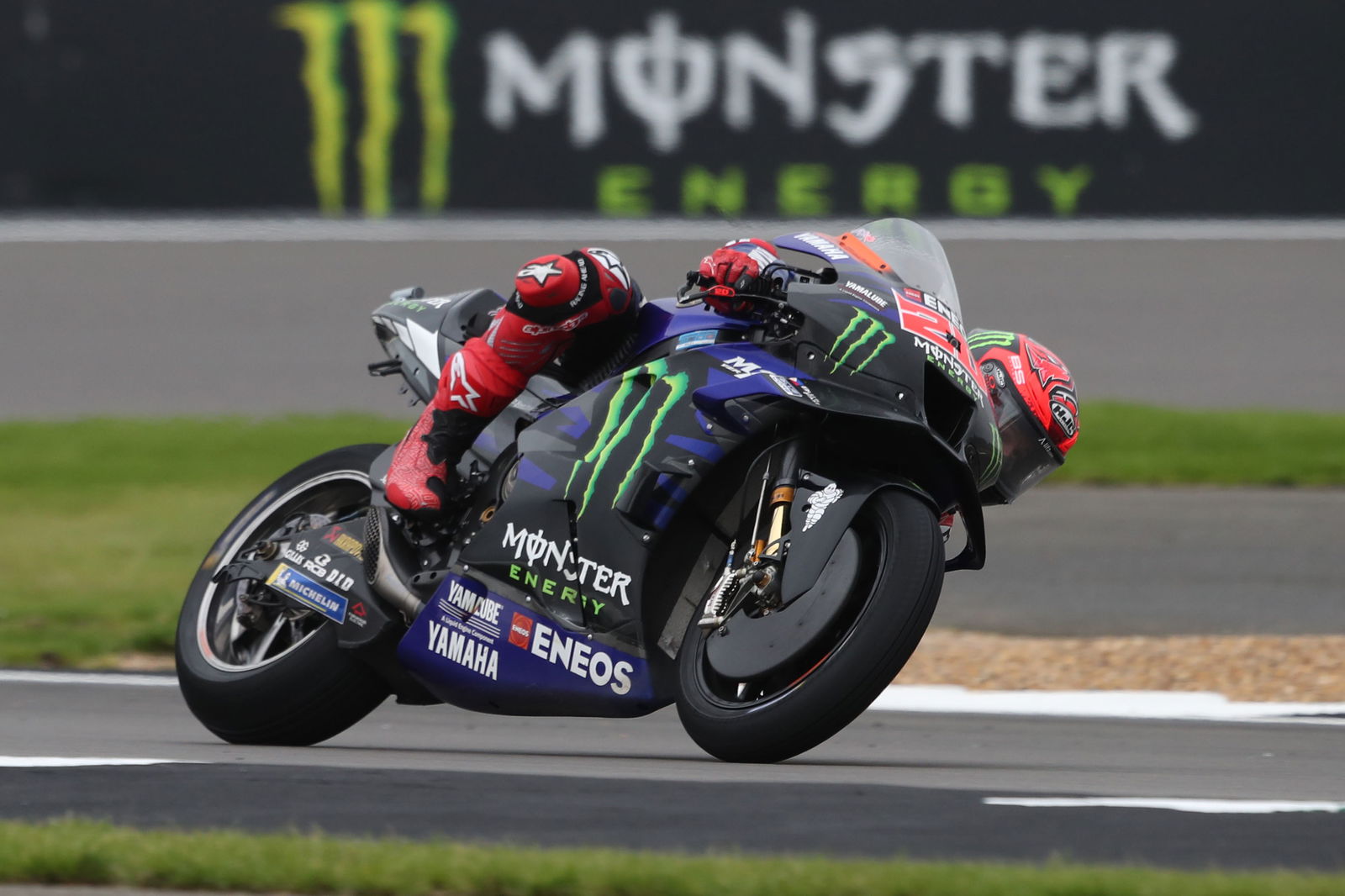
Fabio Quartararo endured one of his worst days in MotoGP on Saturday in Silverstone. He qualified last, and made up only one position in the Sprint to finish 21st. In Argentina, Quartararo was fast in the wet, and came from last to seventh in the Grand Prix. Why he was not able to find the same competitiveness with his Yamaha YZR-M1 in Silverstone mystified him.
“Why? I don’t know,” Quartararo said. “To finish 30 seconds behind [the winner] in only 10 laps [...] I don’t understand it.
“Basically, we are missing a lot of rear grip, spinning in the straight,” Quartararo said.” Unlike for some of the others, the issue also presented challenges on corner entry, as well as in acceleration.
“But then also going in,” the 2021 World Champion continued, “when you go in and you have to lean the bike, you cannot lean the bike because the [rear] grip is not there, and then you cannot make corner speed. It is many, many problems, it is not one problem.”
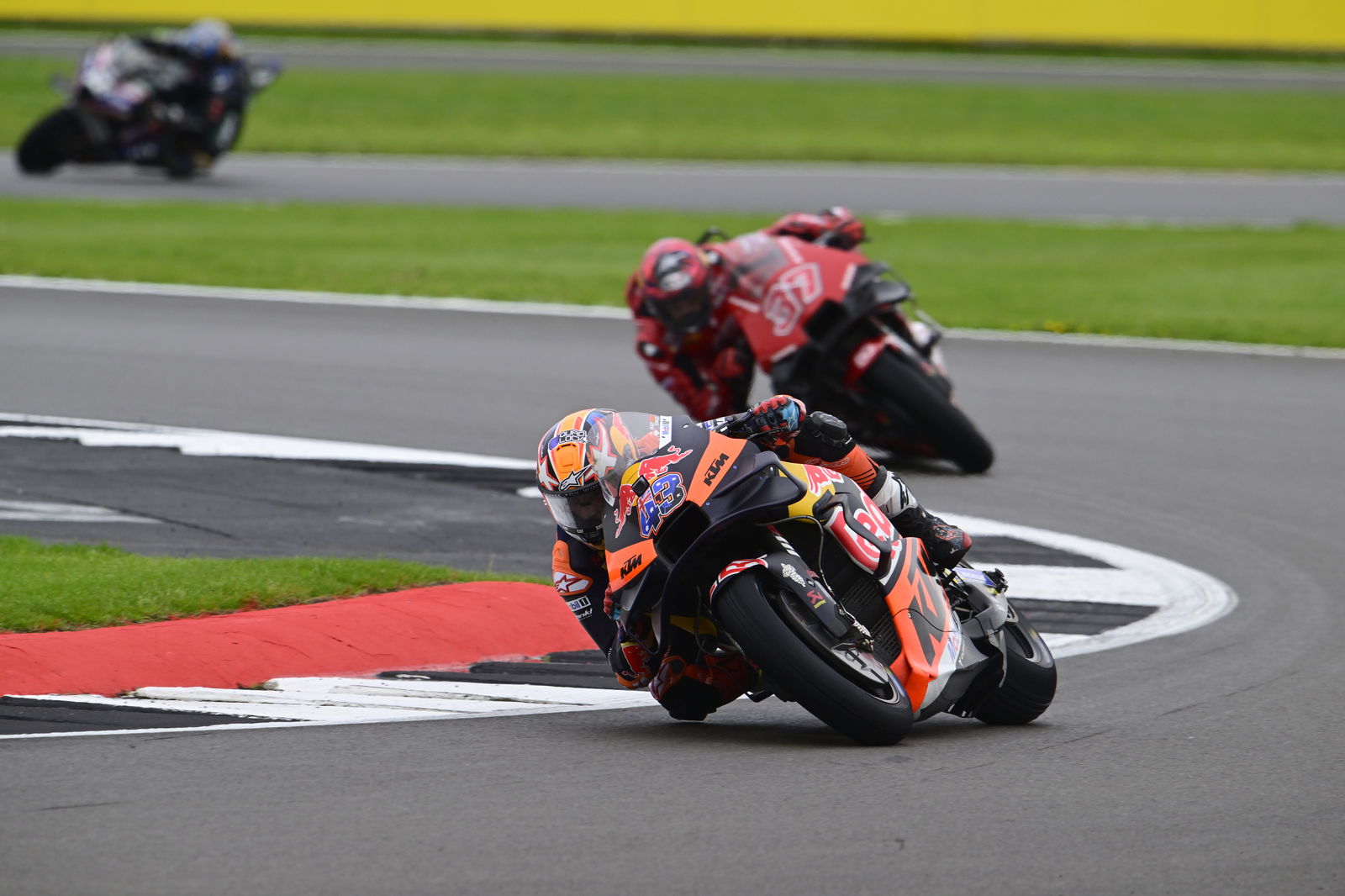
Jack Miller’s issues, which saw him drop from the lead to seventh in the duration of the 10-lap Sprint, stemmed from a lack of experience with the KTM RC16. This was the first time he and KTM had faced the half-wet-half-dry conditions that the Sprint had presented. “Now [after the Sprint], it’s just about trying to find a setting for that sort of half-wet-half-dry kind of conditions, because our bike between dry and wet is a massive difference.”
How ‘massive’? “I’ll say it, our bike is 30mm shorter, when it goes from dry to wet we are 30mm shorter, which is a massive step for a MotoGP bike,” Miller said, “but it seems to work in the wet like that, [but] it doesn’t work in the dry like that.
“Having that big of a step in between the setting [from dry to wet], we need to understand if it’s not completely wet, we don’t need all that transfer, because it was like it was almost overloading the rear and that was what brought the rear temperature through the roof from the beginning.”
The Miller-KTM partnership remains a work in progress, but at least there is progress to be seen. That is more than can be said for the likes of Nakagami and Quartararo, and their stablemates in their respective Japanese factories.
